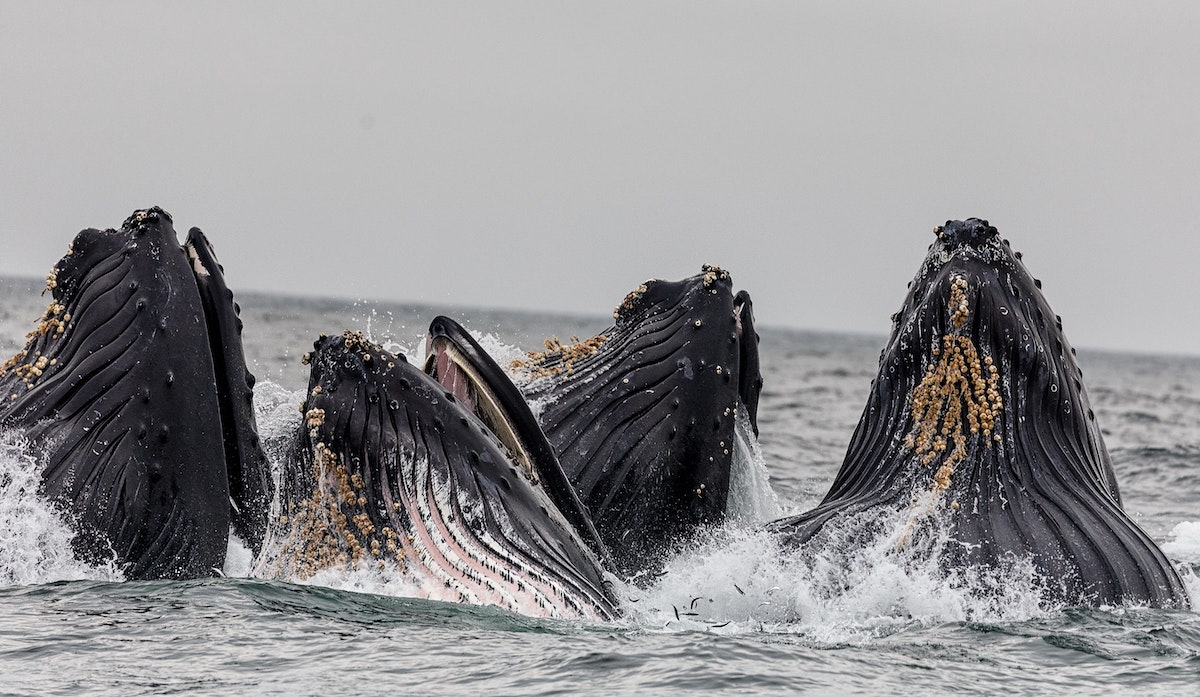Support strong Canadian climate journalism for 2025
It’s do-or-die time for Canada and the rest of the international community to finally get a deal done to protect the world’s oceans, say global leaders, environmental groups, and celebrity activists.
International delegates are hunkering down in the back rooms at the United Nations in New York until March 3 in a last-ditch attempt to broker a legally binding deal to protect biodiversity on the high seas.
The European Union promised 40 million euros to support ratification of the treaty Wednesday, as did Palestine — which committed US$50,000 and urged developed nations to assume their responsibility to resource the treaty.
On Tuesday, Hervé Berville, France’s secretary of state for the sea, stressed all nations must demonstrate ambition to craft an effective, efficient and universal treaty.
“We need to put the ocean at the core of our diplomatic discussion and political priorities,” Berville said, adding the treaty was one of the most important of the coming decade.
A meaningful financial package to support technology transfer and capacity building in the Global South was key to securing agreement and making the treaty actionable in the short term, he said.
No Canadian political leaders or ministers have participated at the conference or committed funding to date, but it’s still early in the conference, said Susanna Fuller, operations vice-president of Oceans North.
“A contribution signals Canada is serious about making sure this is a global treaty and developing states have the capacity to put it into force,” she said.
Past negotiations to finalize the UN High Seas Biodiversity Treaty to protect life in the ocean and establish a blueprint for the equitable and sustainable use of marine resources floundered in August.
Sticking points included some nations resisting change to fishing rights and the failure of rich nations to provide funding and support to the countries of the Global South.
While most Canadians might not know or care about an international ocean treaty that’s been in the works for decades, they should, Fuller said.
The treaty could lay the ground rules for protecting the largest and most vital ecosystem on the planet to benefit humanity and tackle the dual crises of climate change and biodiversity collapse, she said.
The high seas — marine areas beyond the 200 nautical mile boundaries of coastal nations — make up nearly 64 per cent of the ocean’s surface. The ocean produces half the planet’s oxygen and curbs global warming, she added. Yet little more than one per cent of the ocean is protected.
“The treaty is hugely important,” Fuller said.
“When have we ever had an opportunity to put into place a global framework to protect biodiversity for fully half the planet?”
Coastal nations like Canada, which has the longest coastline in the world, are highly dependent on the health of marine life in the ocean, she said.
“People really depend on different species, many of which spend part of their lives in the high seas, for their culture or for food.”
Global Affairs Canada, headed by Minister Mélanie Joly, is the lead agency negotiating at the conference, Fuller said.
High seas treaty first to protect — not exploit — the ocean

Although global human and ocean health are intertwined, the high seas are still largely uncharted territory, inadequately governed by a loose patchwork of international agreements and agencies, Laura Meller, oceans campaigner for Greenpeace, told Canada's National Observer.
Most existing rules and tools in international governance are solely focused on exploiting the ocean, Meller said.
“This treaty is very much set up to do the opposite,” she said.
“It can really transform the way we approach the global ocean that belongs to all of us.”
A strong ocean treaty is the litmus test for global leaders’ promise to protect 30 per cent of the world’s oceans and lands by 2030, Meller said.
The landmark international pledge was set out at the UN biodiversity conference, COP15, hosted by Canada in Montreal in December.
Failure to secure the ocean treaty would seriously jeopardize the 30x30 target just months after the pledge was signed, Meller said.
There’s an expectation that Canada’s leadership should show up and speak up at the negotiations, Meller added.
In the past couple of years, Canada has built recognition and momentum in the international community on the importance of protecting the ocean, Meller said.
Environment Minister Steven Guilbeault helped secure the biodiversity framework at COP15, and Fisheries and Oceans Minister Joyce Murray just finished hosting IMPAC5, a global ocean conservation summit in Vancouver. Both ministers co-chaired the leadership summit at IMPAC5 and cited the high seas biodiversity treaty as the top priority.
Last year, Prime Minister Justin Trudeau also committed Canada to the High Ambition Coalition, 50-plus countries working at a high political level to secure the high seas treaty.
“It’s hoped Canada will carry on building on that leadership and doing the footwork to bring this critical international agreement over the line,” Meller said.
Fisheries and Oceans Canada (DFO) did not respond to Canada’s National Observer questions on the federal government’s role or goals at the treaty conference.
Rochelle Baker / Local Journalism Initiative / Canada’s National Observer






Comments